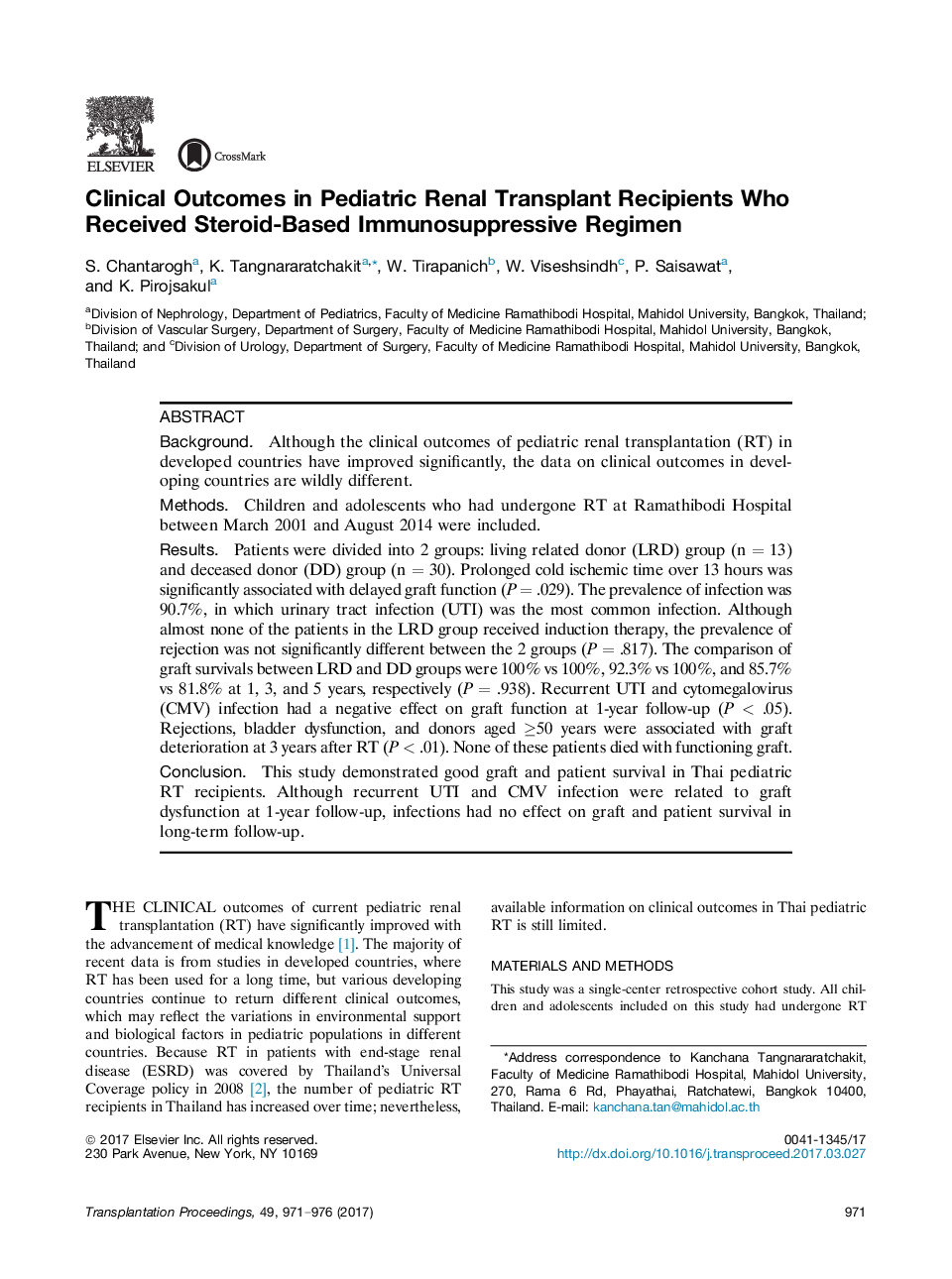| Article ID | Journal | Published Year | Pages | File Type |
|---|---|---|---|---|
| 5728781 | Transplantation Proceedings | 2017 | 6 Pages |
BackgroundAlthough the clinical outcomes of pediatric renal transplantation (RT) in developed countries have improved significantly, the data on clinical outcomes in developing countries are wildly different.MethodsChildren and adolescents who had undergone RT at Ramathibodi Hospital between March 2001 and August 2014 were included.ResultsPatients were divided into 2 groups: living related donor (LRD) group (n = 13) and deceased donor (DD) group (n = 30). Prolonged cold ischemic time over 13 hours was significantly associated with delayed graft function (P = .029). The prevalence of infection was 90.7%, in which urinary tract infection (UTI) was the most common infection. Although almost none of the patients in the LRD group received induction therapy, the prevalence of rejection was not significantly different between the 2 groups (P = .817). The comparison of graft survivals between LRD and DD groups were 100% vs 100%, 92.3% vs 100%, and 85.7% vs 81.8% at 1, 3, and 5 years, respectively (P = .938). Recurrent UTI and cytomegalovirus (CMV) infection had a negative effect on graft function at 1-year follow-up (P < .05). Rejections, bladder dysfunction, and donors aged â¥50 years were associated with graft deterioration at 3 years after RT (P < .01). None of these patients died with functioning graft.ConclusionThis study demonstrated good graft and patient survival in Thai pediatric RT recipients. Although recurrent UTI and CMV infection were related to graft dysfunction at 1-year follow-up, infections had no effect on graft and patient survival in long-term follow-up.
